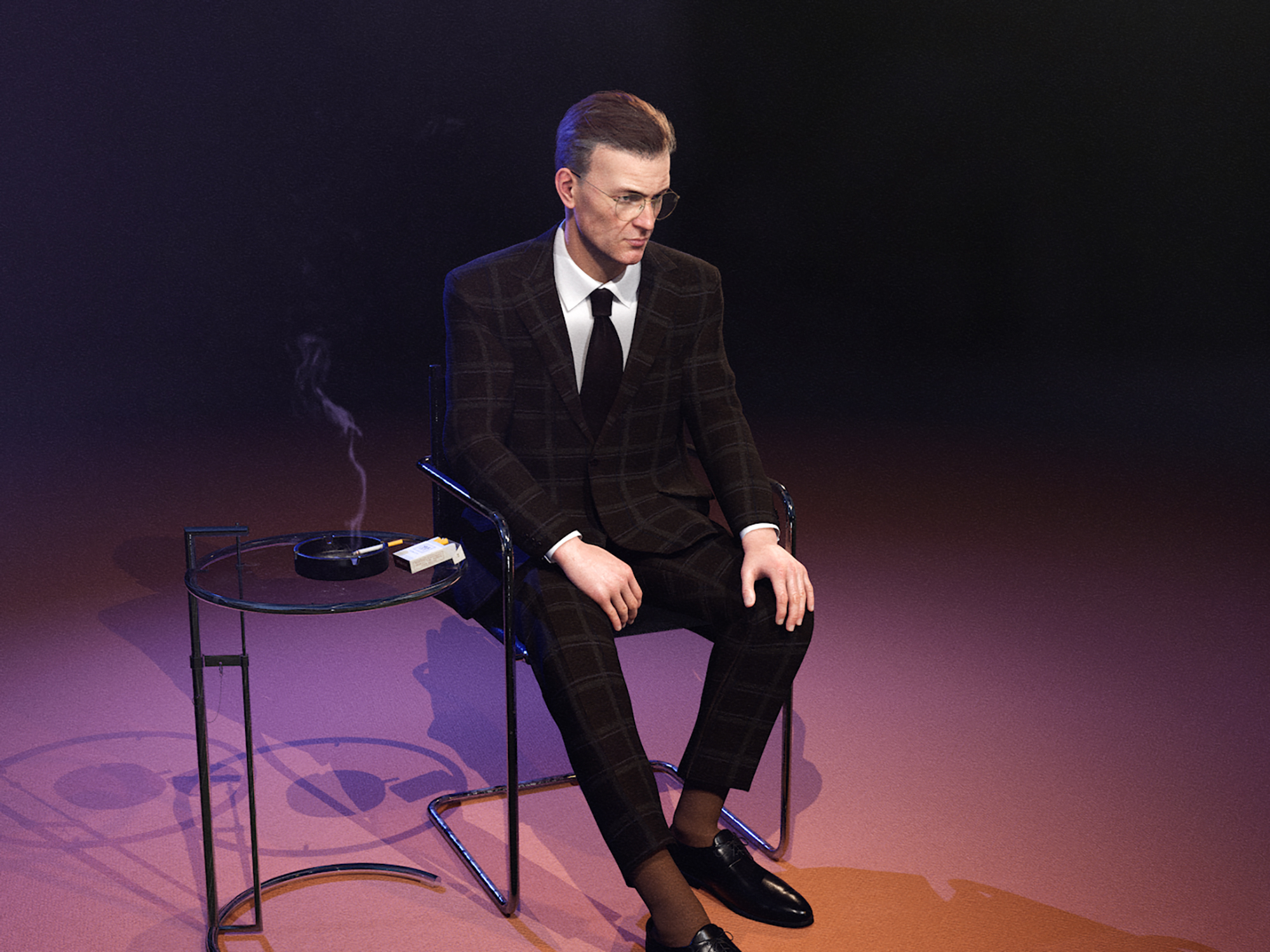Each month, we publish an original poem, written in response to a work of contemporary art. This month, Sam Riviere chose works from Ed Atkins (2025) at Tate Britain.
Language lies at the heart of Ed Atkins’s CGI videos and performances. Digital avatars ramble and moan in liminal rendered spaces; protagonists modelled on Atkins himself perform musical pieces; uncanny faces and sounds recur like ghosts. A question runs throughout the exhibition: who is really there?
Anybody there?
after Ed Atkins
Yes yes yes of course. No no. Very much.
If at all. Ahh. At all. Thank you. Up we go,
up we go, we go. Up up. What a day, what
a day. Oh I. Ah. Ahh. Yes yes yes. Ahh
yes yes yes. Yes. Ahh at eight o clock. Yes
thank you very much. Yes. Yesss. Ahh. Uhh.
Hmm. St James’s. Well. Hmm. Hah yes.
Wash. And moreover, a brush up. Yes. Err,
ah erm. I’ll erm. Er, thank you. Turn down
the bed. Turn down the bed yes. Turn down
the bed. Thank you. Wouldn’t go amiss.
Aha. Tututut. Beach. Cemetery. Spooky.
Is it, hm. Spooky. Hmhm. Hmhm. Oyy. Hah.
Old forefather of the village. Sleeping no doubt.
Give a dog a bone. Finders keepers. Hahh.
One hundred and one things a boy can do.
Tcha tcha tcha tcha. Dirty. Inscription. Quis.
Est. Iste qui uenit. We shall blow it and see.
Ah, ha. The survival of the human personality.
Hm. Well now. That’s a different question again
really. And err. It has the. Grammatical appearance
of a real question, but I wonder does it really,
and does it really mean anything either? I mean
does it? Let’s see. We say, for the sake of argument
that the human personality survives death. Huh.
Right. But would we say too the same way
that we might say, for example, that someone
survived a train crash. Umm. Yes. Ah, but
would we? Yes. Would we you see. I mean
are we saying, don’t we, that poor Sanias survived
the train crash. But was very badly injured by it.
Now. We wouldn’t want to say poor Sanias survived
death and was very badly injured by it. We definitely
wouldn’t want to say that. Would we? Um no.
No no no. Well clearly here we have a logical
difference of usage. In that death in a sense
is not like other physical catastrophes, I. I mean one,
one doesn’t talk about anyone being very badly hurt
by death except possibly the relatives of the deceased.
But never the victim himself excluding of course
the erm. The special interpretation in which one
might say that he had been injured. Fatally, by death.
Or for that matter, that she had. Delicious breakfast.
No no no. Aha, umm. Cold. Yes, yes, I need that.
Yes, a sort of dog. Rumpled it certainly is, yes.
Rumpled. Ahh. I don’t like tomatoes, I told them
I didn’t like tomatoes. Tomatoes in the middle
of winter, never going to taste the same. Haah.
Oh no. Yes, well umm. Oh no. I think I’ll er.
Oh no. I. I. I’ll umm. Oh no. I’ll er just tidy
these things up a bit. Oh no. Oh no. No.
Sam Riviere’s latest poetry collection is Mirrors for Princes (After Hours Ltd, 2025)
